 What if a report from Special Counsel Robert Mueller demonstrates that President Trump is guilty of crimes and compromised by a foreign power but Congress does not pursue impeachment? This is a real possibility because many members of Congress—even those who are no fans of the president—worry that without bi-partisan support, impeachment could look like a coup against the president that further divides an already polarized country. So it is worth pondering the alternative. How would Washington work in the two years until the next election if the president was shown to be criminal and compromised but remains “un-impeached?”
What if a report from Special Counsel Robert Mueller demonstrates that President Trump is guilty of crimes and compromised by a foreign power but Congress does not pursue impeachment? This is a real possibility because many members of Congress—even those who are no fans of the president—worry that without bi-partisan support, impeachment could look like a coup against the president that further divides an already polarized country. So it is worth pondering the alternative. How would Washington work in the two years until the next election if the president was shown to be criminal and compromised but remains “un-impeached?”
One possibility is that Congress will sideline a damaged presidency and expand its power in ways not seen since the early 1970s. That period did not last long, however, and the nation quickly returned to an era of powerful presidents and more quiescent congresses. Before that, you need to go back a full century, to the post-Civil War era in America, for an example of congressional dominance. At that time, it lasted for decades. But in both instances, an unpopular president plagued by huge differences with his party (in the case of Andrew Johnson) and with scandal (in the case of Richard Nixon) ushered in an era of congressional dominance. Impeachment or not, President Trump’s myriad troubles could bring about yet another era of congressional dominance over the presidency. Hence, a brief review of history is in order.
Congress is often referred to as the first branch of government, as it was conceived in Article I of the Constitution before all other branches. In the first century and a half of the U.S. government, there were, according to the congressional scholar James L. Sundquist, “more years of congressional than of executive ascendancy.”[1] During the early 1800s, Congress was often more powerful than the president for one simple reason: presidents were nominated by the caucus of their party in Congress and were thus obligated to the congressmen who had selected them. Congress even dominated foreign affairs. The War of 1812 was referred to as “Henry Clay’s war” after the powerful speaker of the House who initiated it.
But the longest period of congressional ascendency began when Congress snatched the power to define the post-Civil War reconstruction from President Andrew Johnson, who they impeached but failed to convict. This period of congressional power lasted 36 years—from the controversial presidency of Johnson until the presidency of Theodore Roosevelt, and in most of these congresses Republicans controlled both the House and the Senate. During this time, major pieces of legislation such as the Interstate Commerce Act and the first antitrust law originated on Capitol Hill and not in the White House.
The 20th century was a time of strong presidents, with perhaps the strongest of all being Franklin Roosevelt who exemplified presidential power as no president had since Abraham Lincoln. But in the early 1970s, Congress asserted its power once again. Spurred to action by President Richard Nixon’s expansive use of presidential power and by the growing Watergate scandal, Congress created a new budget process, prohibited the impoundment of funds, expanded its own expertise through creation of the Congressional Budget Office, passed the War Powers Resolution and served as a check on executive action. By 1975, the political scientist Edward A. Kolodziej wrote, “What appears clear, however, is that Congress has again become a formidable force in the development and execution of American security and foreign policy.”[2]
That, of course, was a long time ago and recent Congresses cannot be blamed for the weakness of their unused muscles. But even if the 116th Congress does not move on impeachment, they will have to move to constrain presidential power. Fortunately, there’s reason to believe they will be able to do so. President Trump dominates the headlines so overwhelmingly—even more than most presidents’ traditional dominance—that one early and significant move to constrain his power has been largely overlooked. In the summer of 2017, as it became clear that the Russia investigation would go forward, Congress passed the Countering America’s Adversaries through Sanctions Act, establishing a regime of sanctions against Iran, Russia, and North Korea and congressional review of presidential efforts to undo them. President Trump objected, arguing that it was unconstitutional because it violated the president’s power to recognize foreign governments and it interfered with the president’s power to conduct international relations. But the bill was veto-proof, having passed the House 419-to-3 and the Senate 98-to-2, and the president dared not veto the bill, knowing he would ultimately lose the battle.
In January 2018, two U.S. Senators, Ben Cardin (D-Md.), Sherrod Brown (D-Ohio), and two congressmen, Steny Hoyer (D-Md.) and Eliot Engel (D-N.Y.), issued a letter to President Trump reminding him of a January 29 deadline that would enable the administration to waive sanctions only if the executive branch could “certify that the government of the Russian Federation has made significant efforts to reduce the number and intensity of cyber intrusions conducted by the government.” Unable to prove that Russia had stopped its intrusions, the Treasury Department had no alternative but to implement sanctions.
As a result, on March 15, 2018, the administration issued its first sanctions “countering Russia’s malign cyber activity.” A year later, in July 2018, President Trump conducted a humiliating press conference with the Russian President Vladimir Putin that resulted in explicit criticism of his handling of that relationship from 14 Republican Senators.
A few months later, the Senate fought back against the president a second time when, in December, it voted 56-to-41 to advance a resolution demanding an end to U.S. support for Saudi Arabia’s coalition in the war in Yemen. The vote followed anger over President Trump’s continued support for the Saudi Crown Prince who U.S. intelligence agencies believe ordered the murder and dismemberment of a Saudi journalist living in the United States. Administration officials argued that pulling out of Yemen would hurt U.S. interests, but their arguments were deemed weak.
So much for congressional “lap dogs.” The end of 2018 finds the president still unable to build his border wall, still unable to get Mexico to pay for it, and still unable to undo Obamacare. His uneven handling of trade issues is spooking the markets and the list of his aides on their way to jail seems to be growing. As the president’s legal troubles grow, so will the opportunities for Congress to step into the leadership vacuum. They have been there before.
[1] The Decline and Resurgence of Congress, (Washington D.C. Brookings, 1981) page 15.
[2] “Foreign Policy” in Congress Against the President, edited by Harvey C. Mansfield Sr. (New York, The Academy of Political Science) 1975, page 178.
The Brookings Institution is committed to quality, independence, and impact.
We are supported by a diverse array of funders. In line with our values and policies, each Brookings publication represents the sole views of its author(s).

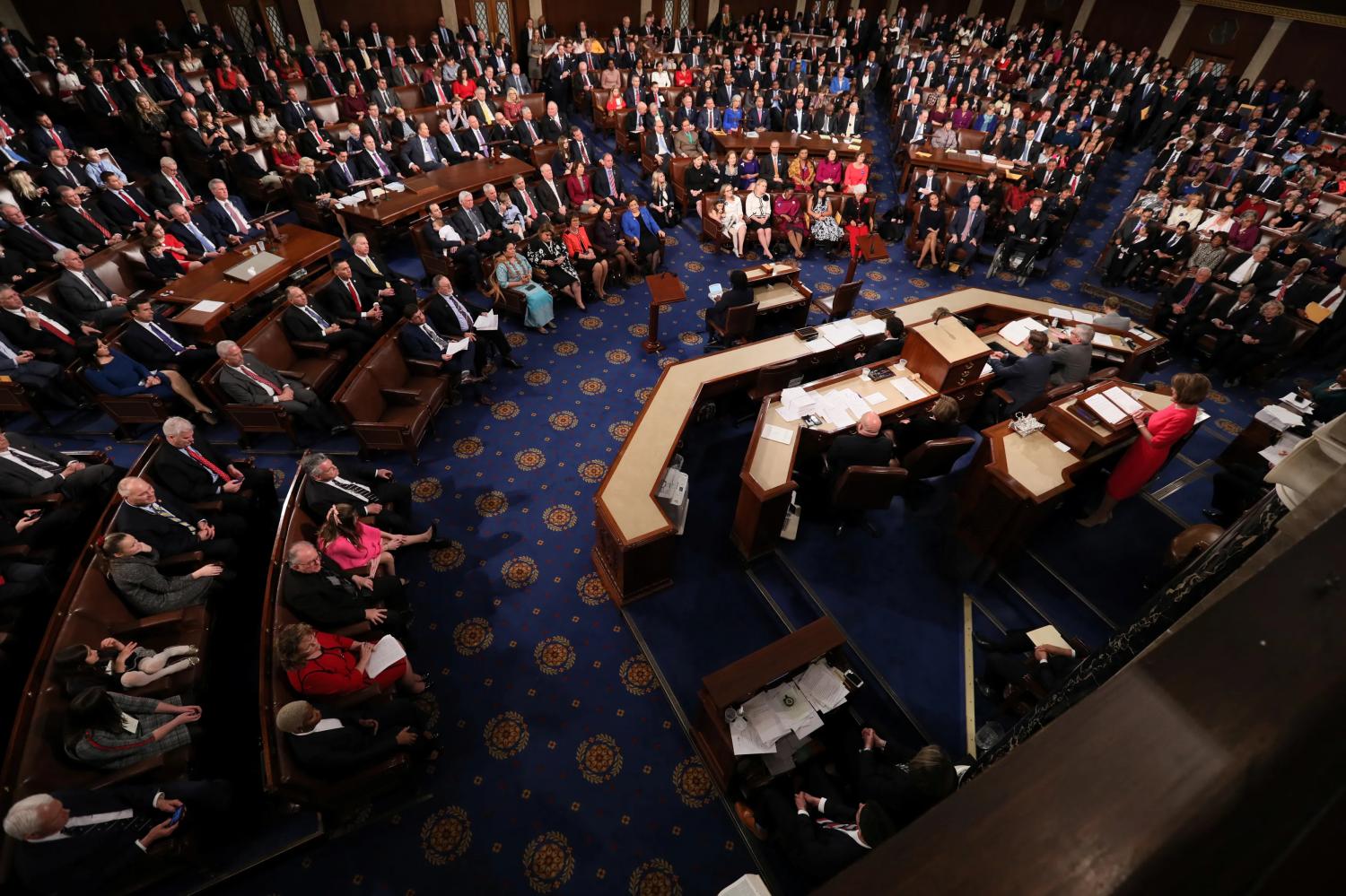
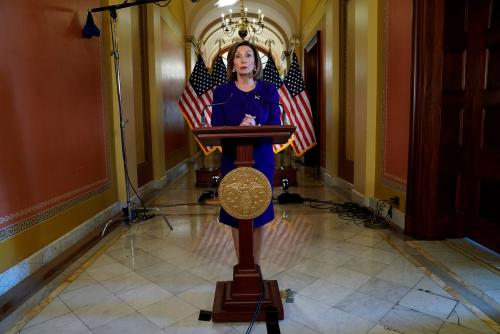
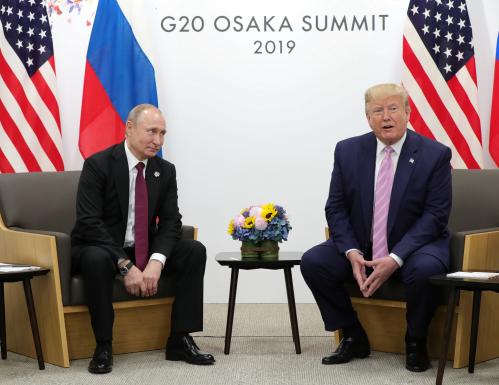

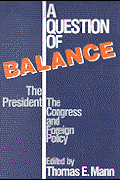

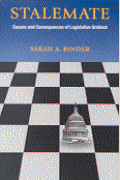




Commentary
Congress in 2019: What are the alternatives to impeachment?
December 31, 2018